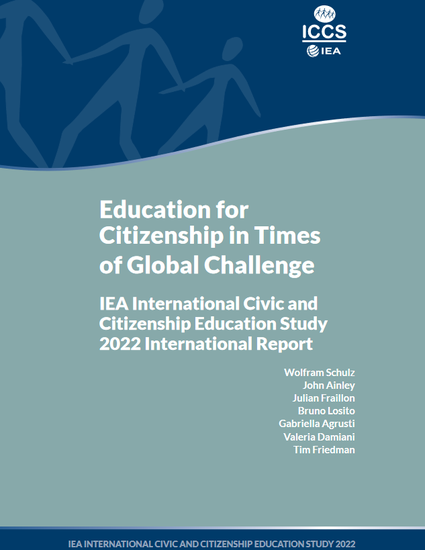
This publication contains the first report on findings from the International Civic and Citizenship Education Study (ICCS) 2022 which was conducted across 24 education systems to provide data and insights about lower-secondary school students’ understanding of civics and citizenship. Countries participating were: Brazil; Bulgaria; Chinese Taipei; Colombia; Croatia; Cyprus; Denmark; Estonia; France; Germany (North Rhine-Westphalia); Germany (Schleswig-Holstein); Italy; Latvia; Lithuania; Malta; Netherlands; Norway; Poland; Romania; Serbia; Slovak Republic; Slovenia; Spain; and Sweden. The third cycle of ICCS set out to address aspects related to global citizenship, sustainable development, migration, changes to traditional political systems, and the use of digital technologies for civic engagement, while also continuing to monitor changes over time using common measures across cycles. ICCS 2022 offered the option of an online delivery, which was chosen by about three quarters of participating countries and included specifically designed test items that used the possibilities of a digital assessment to enhance measurement of students’ civic knowledge and understanding. Between February and September 2022, the main survey gathered data from 82,000 students and 40,000 teachers at about 3400 schools. Incorporated into the ICCS main survey was a mode effect study which allowed for data collected using the paper-based instruments to be compared with data collected on computer from equivalent groups of students. Key research questions addressed include: how is civic and citizenship education implemented, and what is the extent and variation of students’ civic knowledge within and across participating countries? What is the extent of students’ engagement in different spheres of society and which factors within or across countries are related to it? What beliefs do students in participating countries hold regarding important civic issues in modern society and what are the factors influencing their variation? How is schooling in participating countries organised regarding civic and citizenship education and what is its association with students’ learning outcomes? Themes addressed include: sustainability, engagement through digital technologies, views of political systems, global citizenship, and diversity.
© International Association for the Evaluation of Educational Achievement (IEA) 2023. This book is an open access publication. Open Access This book is licensed under the terms of the Creative Commons Attribution-NonCommercial 4.0 International License (http://creativecommons.org/licenses/by-nc/4.0/), which permits any noncommercial use, sharing, adaptation, distribution and reproduction in any medium or format, as long as you give appropriate credit to the original author(s) and the source, provide a link to the Creative Commons license and indicate if changes were made
Available at: http://works.bepress.com/julian_fraillon/82/
